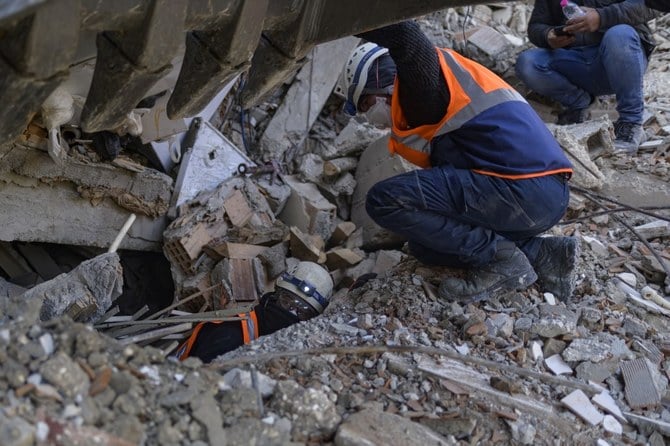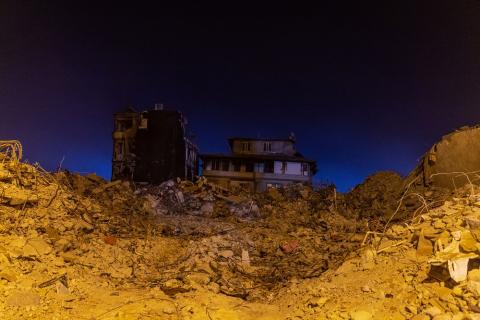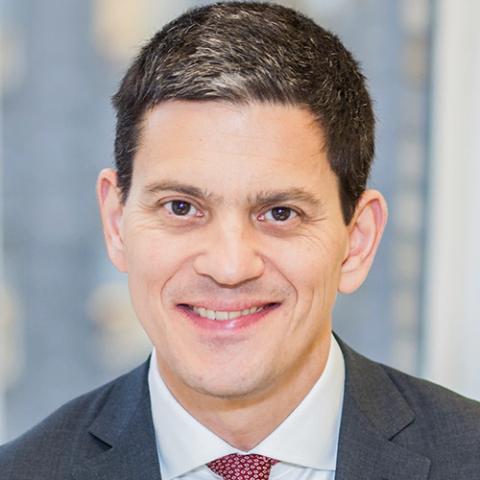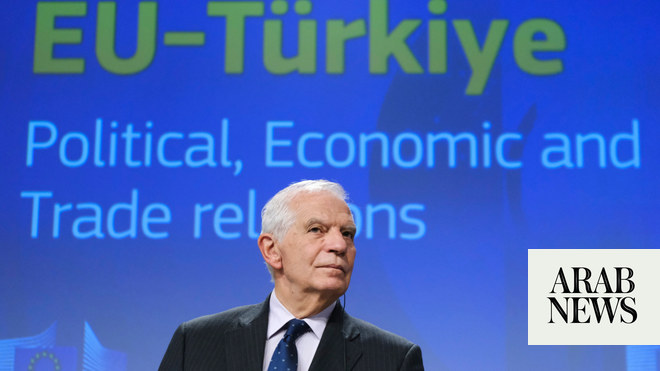
Solidarity and sympathy in the face of disasters is the common ground that brings nations together. Scholars argue that disasters induce cooperation even between countries that have traditionally been enemies. However, this type of diplomacy is not usually long-lasting. It helps in mending ties and reducing tensions, but it needs a firm commitment to maintain that spirit in the post-disaster era.
It has been almost a month since the devastating earthquakes struck Turkiye and Syria, costing the lives of more than 50,000 and destroying hundreds of buildings. The international aid and assistance to Turkiye and Syria is still ongoing, as the two countries have entered into a new phase of the earthquake process, which is the recovery following the initial rescue phase.
During the last month, several foreign ministers have paid visits to Turkiye to express their countries’ support and solidarity with the Turkish people. Also, several Arab officials have made their way to Syria, which is internationally isolated over the devastating war that has ravaged the country.
Among the most significant visits to Turkiye were those paid by the foreign ministers of Jordan and the UAE. Most recently, Egyptian Foreign Minister Sameh Shoukry visited both Syria and Turkiye, becoming the most senior Egyptian official to do so in more than a decade. In his first stop, in Syria, Shoukry met with Syrian President Bashar Assad. On his next stop, in Turkiye, he met with his Turkish counterpart Mevlut Cavusoglu. He met Cavusoglu in the southern city of Adana, which was hit by the earthquakes. Later on, the Turkish and Egyptian ministers visited the port of Mersin, where an Egyptian aid ship arrived on Monday.
The Egyptian side made the goal of the visits clear by saying that it was primarily humanitarian, and to pass on Egypt’s solidarity — from the leadership, the government and the people of Egypt to the people of the two countries. Later, Shoukry also said in remarks to a local Egyptian television channel that the visit indicated a willingness to turn over a new leaf with both countries. The visit “reflects the interest for relations between Egypt and the two countries to return to their normal status,” he said.
Despite the remarkable developments, there are still challenges in Turkiye-Egypt relations that need closer dialogue
Sinem Cengiz
A day after the first earthquake, Egyptian President Abdel Fattah El-Sisi called his Syrian counterpart, which was the first official exchange between the two leaders. On the same day, El-Sisi also spoke with Turkish President Recep Tayyip Erdogan. A few days later, a delegation of parliamentarians from around the region, including Egypt’s parliament speaker, met Assad in Damascus. Egypt reopened its embassy in Syria in 2013 but kept its distance from the Assad regime. Previously, the Egyptian and Syrian foreign ministers met in 2021 on the sidelines of the UN General Assembly.
Regarding Ankara, a rapprochement has been underway. Erdogan and El-Sisi shook hands during the 2022 World Cup in Qatar — another country with which Egypt has rebuilt relations recently. Speaking to reporters in Mersin, Cavusoglu said Erdogan and El-Sisi could meet again soon. “During our talks today, we exchanged views on mutual visits in the upcoming period. Our deputy foreign ministers met twice before, and it would be beneficial for them to meet again,” he said. “After our talks, our presidents can meet either in Turkey or Egypt.”
Such a visit would be likely to consolidate the normalization process between the two countries, but which capital will be chosen for the first head-to-head meeting will tell us a lot. Moreover, despite the remarkable developments, there are still challenges in the relations that need closer dialogue and mutual understanding to reach a solution, which can only be achieved through rationality and pragmatism. How the earthquake diplomacy will help in improving Turkiye’s relations with Egypt will become clear in the coming months.
On the Syria side, Assad might have the expectation that earthquake diplomacy will ease his path to normalization in Arab politics and carve a new role for himself in the Arab fold. However, although several states have been seeking to reengage with Damascus for some time, they face challenges in how to come up with a workable policy. There is not much the Assad regime can offer when it comes to a political process or regional alignment and the regional countries are well aware of this fact. Therefore, their current focus is mainly humanitarian rather than political and mostly based on a cautious approach toward Damascus. That is, politics should not be mixed with the ongoing tragedy and humanitarian support should not be perceived from a political angle.
Before the earthquakes struck Turkiye and Syria, the two neighbors were set to enter a new stage in their relations after a decade of enmity. However, neither Ankara nor Damascus sent any condolences to the other side following the earthquakes and it seems that earthquake diplomacy did not work between these two capitals, as the conditions caused by this disaster have shifted their priorities.
In the case of Syria, the ongoing international solidarity with the Syrian people is unlikely to lead countries to build a sustainable relationship with the regime due to the ongoing humanitarian tragedy there, even before disaster struck.
• Sinem Cengiz is a Turkish political analyst who specializes in Turkiye’s relations with the Middle East. Twitter: @SinemCngz
Disclaimer: Views expressed by writers in this section are their own and do not necessarily reflect Arab News" point of view












